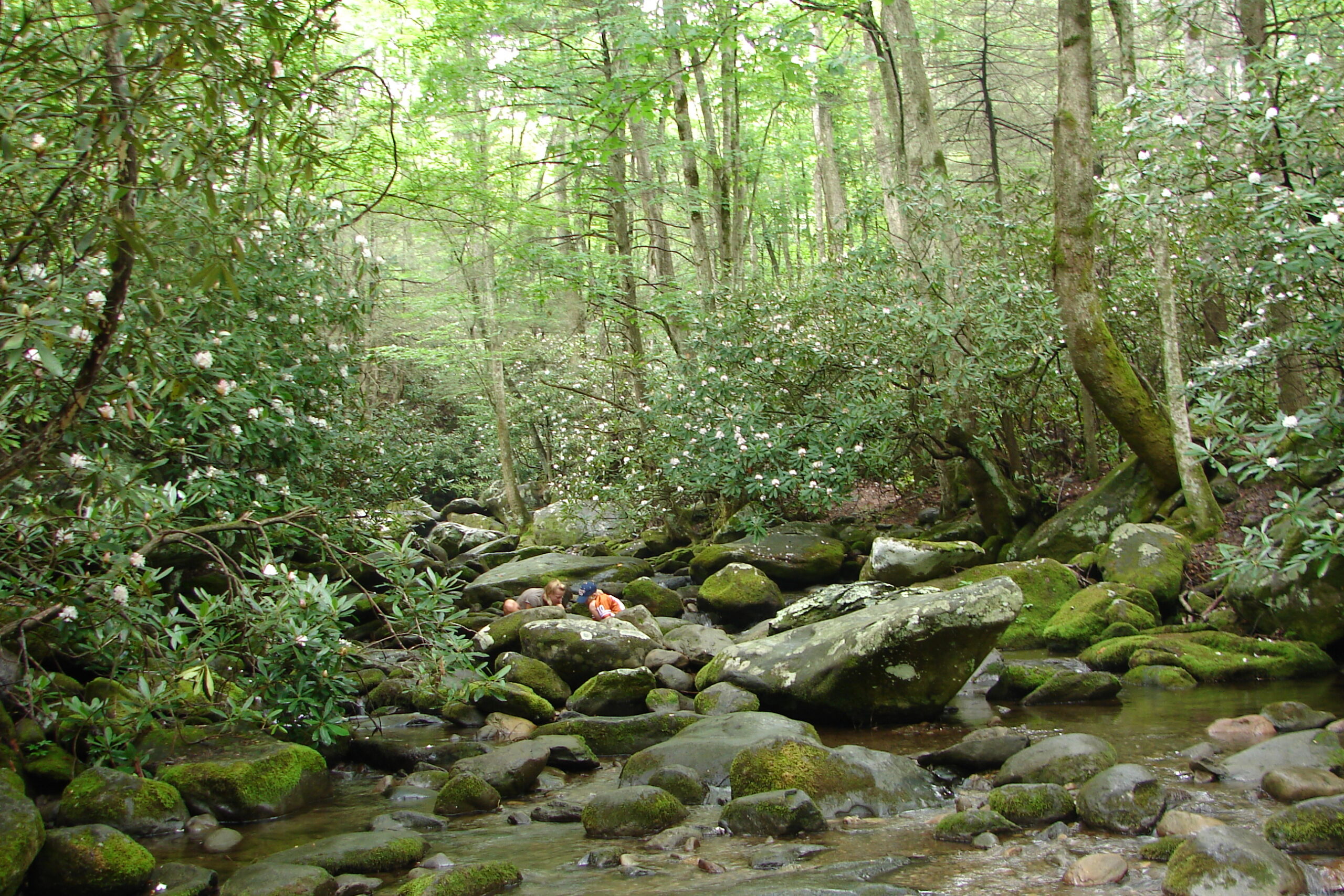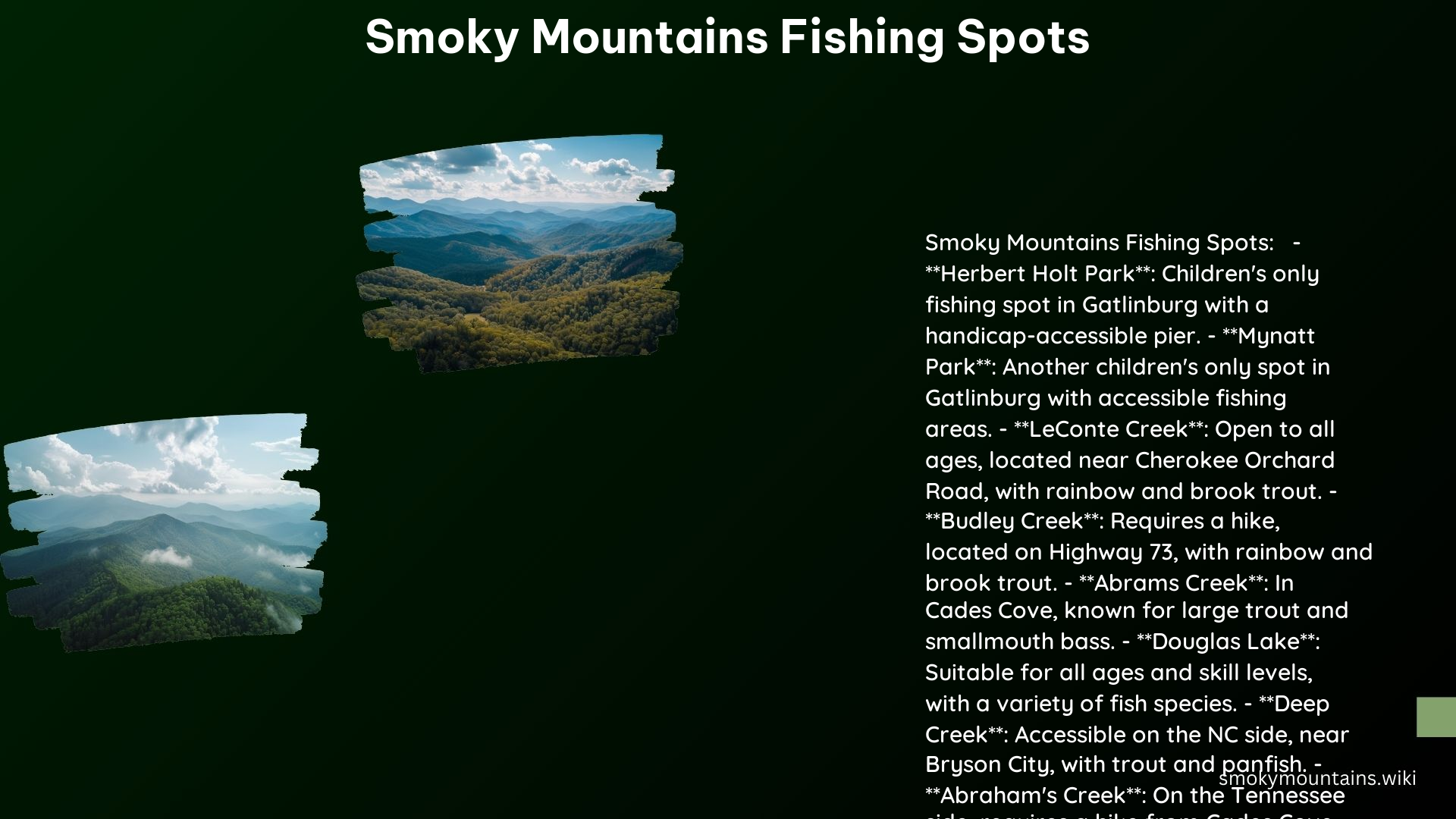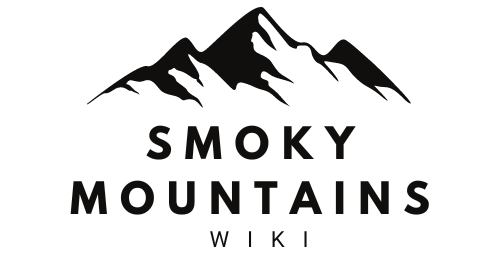The Great Smoky Mountains National Park is a renowned destination for outdoor enthusiasts, and fishing is one of the most popular activities in the area. From crystal-clear streams to serene lakes, the Smoky Mountains offer a diverse array of fishing spots that cater to anglers of all skill levels. In this comprehensive guide, we’ll explore the top fishing destinations in the Smoky Mountains, providing you with the information you need to plan your next angling adventure.
Abrams Creek: Trout and Smallmouth Bass Haven

Nestled in the Cades Cove area, Abrams Creek is a prime destination for anglers seeking large trout and feisty smallmouth bass. This creek requires wading, but the peaceful setting and abundant fish make it a must-visit for any serious angler.
Deep Creek: Trout Fishing Delight

Situated on the North Carolina side of the Smoky Mountains, just outside of Bryson City, Deep Creek is a popular spot for trout fishing. Its easy accessibility and diverse fishing opportunities make it a favorite among both beginners and experienced anglers.
Herbert Holt Park: A Family-Friendly Fishing Spot
Located in Gatlinburg, Herbert Holt Park is a children-only fishing spot with a handicap-accessible fishing pier. It’s an ideal destination for those looking for a more relaxed and beginner-friendly fishing experience.
Mynatt Park: Another Children’s Fishing Oasis
Similar to Herbert Holt Park, Mynatt Park in Gatlinburg allows anglers of all ages to walk along the stream and choose their preferred fishing spot. It’s a great option for families and those new to the sport.
LeConte Creek: Serene Trout Fishing
This creek, located near the National Park’s new office, offers a peaceful fishing environment and is known for its rainbow and brook trout. It’s open to anglers of all ages and skill levels.
Budley Creek: A Hidden Gem
Situated on Highway 73, Budley Creek is a lesser-known fishing spot that requires some effort to reach, but the reward is a rewarding fishing experience for those willing to venture into the woods.
Douglas Lake: Diverse Fish Species
A large lake with a variety of fish species, including largemouth and smallmouth bass, trout, crappie, and bluegill, Douglas Lake is suitable for anglers of all ages and skill levels.
East Prong of Little River: Trout Fishing Mecca
One of the most popular fishing spots in the park, the East Prong of Little River offers excellent trout fishing opportunities.
West Prong of the Little Pigeon: Another Trout Fishing Gem
Similar to the East Prong, the West Prong of the Little Pigeon is a top destination for trout fishing in the Smoky Mountains.
Oconaluftee River: Trout Fishing at Its Finest
Known for its trout fishing, the Oconaluftee River is a must-visit destination for anglers in the Smoky Mountains.
Guided Fishing Trips: Unlock the Secrets of the Smoky Mountains
For those looking to maximize their fishing experience, guided fishing trips are available in the Smoky Mountains. These trips offer expert guidance and knowledge of the best fishing spots, ensuring a successful and memorable outing.
Fishing Regulations and Licenses
To fish in the Smoky Mountains, anglers must possess a valid fishing license from either Tennessee or North Carolina. Fishing is allowed year-round from a half-hour before sunrise to a half-hour after sunset, and only artificial flies or lures are permitted. Anglers should also be aware of the daily possession limit of five trout or smallmouth bass.
Catch-and-Release Fishing: Preserving the Smoky Mountains’ Fish Populations
The Smoky Mountains encourage catch-and-release fishing to help maintain the park’s fish populations. Anglers should practice responsible fishing techniques and respect the park’s environment.
Cost and Timings
Fishing licenses in the Smoky Mountains range from $20.50 for Tennessee residents aged 13-64 to $40.50 for nonresidents. Guided fishing trips can cost between $100-$400, depending on the length of the trip and the outfitter.
Directory and Hours
The Great Smoky Mountains National Park is open year-round, 24 hours a day, while the hours of local outfitters may vary. Fishing licenses can be purchased online or in nearby towns.
Rates and Value
While the cost of fishing licenses and guided trips may seem high, the value of fishing in the Smoky Mountains lies in the park’s natural beauty, the variety of fish species, and the opportunity to practice catch-and-release fishing in a stunning natural setting.
References:
– Hilton Grand Vacations
– National Park Service
– Park Place Condos
– Smoky Mountains
– Reddit
